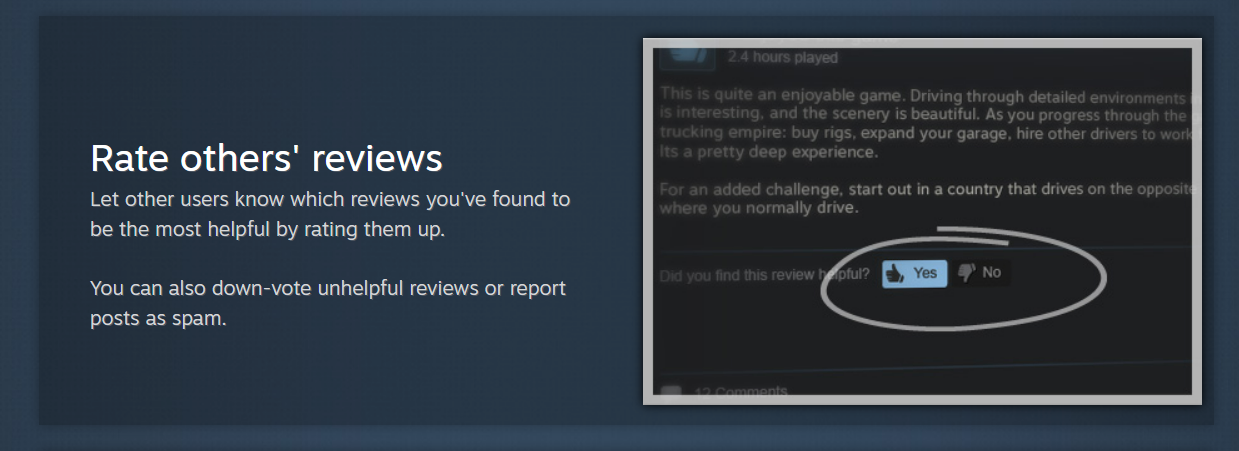A zero-star review accompanied by a “funny” one-liner that reveals that the reviewer actually enjoyed the game – we’ve all seen at least a couple of them while trying to inform ourselves about a game, but it seems this phenomenon is unfortunately prevalent in the Japanese community as well. A Japanese game developer recently spoke out about the issue on social media, and the topic has received attention from users.
Japanese indie game developer @ONIMUSHI_HYOGO posted on their X/Twitter account about the fake negative reviews they see people making “as jokes,” citing the example of users rating games poorly only to demonstrate stale humor such as “I got so hooked to this game my gf dumped me so I’m giving you a score of 0.” This definitely feels like a familiar sight.
They go on to add that erotic games seem to fall victim to this phenomenon more often than other genres.
I feel like earlier, these kinds of reviews used to appear here and there under major, large-scale titles (saying things like “I got hooked to this and lost control of my life”), but now I find them popping up under the titles of small developers and I really think that it could be a life-or-death issue for some developers.
@ONIMUSHI_HYOGO mentions how the meme reviews had once been a thing one could see predominantly with major titles, while it now seems to plague small creators as well. And this is an important distinction to make, as the impact of negative reviews is felt much more strongly by smaller titles. Not only does their overall score get more severely affected due to a lower total number of reviews, but, as opposed to big developers who have brand power and other means of promotion to fall back onto, small developers often have only their Steam page to go off. Meaning that, if their reputation dips down once, they may find it extremely hard to recover.

On Steam, reviews very much translate into sales, so for small creators looking to make a living from making games, such meme reviews may very well be, as @ONIMUSHI_HYOGO mentions, a matter of life and death to them.
Many users responded to the topic, but reactions were, as one would expect, quite unanimous – the act is unfunny and harmful. Many questioned what it is that’s stopping people from posting their little jokes while giving a positive rating, and indeed it is a mystery. For the most part, it’s likely more of a lack of awareness than ill-intentions.
On the other hand, under such reviews, one can also often find a bunch of people “finding the review helpful,” which is a problem of its own as it makes the review far more prominent, and, less importantly, feeds the jokester’s ego.
Earlier this year, marketing professional Ryan T. Brown also spoke of this issue, emphasizing that negative reviews have a far greater impact on the visibility and sales of games than the average person may think.
While Steam’s algorithms can also be added to the conversation and criticized for the dramatic blows they deal to game’ visibility, the issue of simply being respectful to creators comes much before that. Especially in the case of smaller-scale, indie-developers, where leaving a review is a much more direct, human-to-human interaction.






否定を否定するだけじゃ駄目だな。このパターンは逆も多いんだよ、残念ながらね。
中身が全く無い無意味な肯定レビューの方が多く見られるよ。
「プレイ時間を見てくれ」と何千時間ものプレイ時間を誇るレビューが有るが、プレイ時間なんか放置でいくらでも増やせる物に説得力など無い。
「神」とか「好き」とか園児でも書ける内容の肯定的なレビューばかり増えても、それはネットミームと変わらない、だろ?
結局スチームにはまともなレビューなんて一握りも無いのさ。
(The following is a machine translation, sorry if it’s hard to understand.)
It’s no good just denying a negative. Unfortunately, this pattern is often seen the other way around.
There are more meaningless positive reviews with no substance whatsoever.
There are reviews boasting thousands of hours of playtime saying “Look at the playtime,” but playtime is not persuasive when you can increase it as much as you want just by leaving it alone.
Even if there are more and more positive reviews with things like “god” and “love it” that even a kindergartener could write, it’s no different from an internet meme, right?
In the end, there are only a handful of decent reviews on Steam…